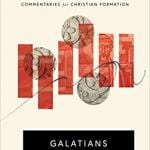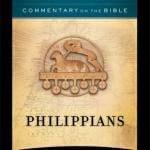Glenn R. Kreider & Michael J. Svigel
A Practical Primer on Theological Method: Table Manners for Discussing God, His Works, and His Ways
Grand Rapids, MI: Zondervan, 2019.
Available at Zondervan and Koorong
By Laura Thierry
It would be nothing remarkable to describe a book on theological method with adjectives such as “solid”, “orthodox”, and “sound”. However, to be able to describe a book not only as such, but also as “energetic”, “creative”, and just plain “sensible” is perhaps a rare find. Yet, each of these descriptors can certainly be applied to Glenn R. Kreider and Michael J. Svigel’s A Practical Primer on Theological Method.
As its subtitle indicates, this book is intended as a guide to “table manners for discussing God, his works, and his ways.” Kreider and Svigel walk their readers through a lucid and well-arranged course in theological etiquette. In the opening scene, the reader is welcomed to a table (p. 17). The centre of the table contains God’s three-fold gift of revelation: “The word to the World” (God’s verbal revelation, primarily in Scripture), “God’s Word in the World” (Jesus Christ incarnate, and his ongoing presence in his body the Church), and “The World of the Word” (all of creation). Around this centrepiece sit eight personae (the Interpreter, Theologian, Virtuous, Philosopher, Scientist, Artist, Minister, and Historian), each with their unique set of gifts, perspectives, and questions, and each in need of the others to truly mine the treasure-trove of the three-fold gift of revelation sitting, front and centre, before then.
Before we meet each of these personae in depth, the book turns for the first three chapters to set the stage. Chapter one addresses “What theological method is and isn’t”, dispelling common misconceptions and concluding on a working understanding of theological method as “focused dialogue” (35). Chapter two goes on to consider what sources we have for theology, providing a helpful account of the division between ‘first tier’ sources (God’s revelation through the Word, world and incarnate Christ), and ‘second tier sources’ (necessary but ever-fallible interpretations of the first tier sources by fallen and finite humanity). Finally, the highpoint of the introductory section offers a succinct yet nuanced introduction to the doctrine of Revelation as God’s threefold gift of Word, world and incarnate Christ.
Chapters four through eleven then proceed to properly introduce each of figures seated around the table (the Interpreter, Theologian, Virtuous, Philosopher, Scientist, Artist, Minister, and Historian) and to highlight their unique role in the theological task. The concluding chapter then extends an invitation to the reader to take their place at the table, and to participate in the dialogue about God, his works, and his ways.
Each chapter is situated around several key sections, providing a structure that contributes well to the work’s memorable and engaging character. Each chapter contains a “centrepiece”—a one to two line precis of its main theme, an “FAQ” box, addressing divergent questions in a conversational tone, an “invitation to the table”—consisting of questions and prompts to assist in application and integration, and a “Jerusalem counsel” note—containing ongoing reflection on Acts 15 as an exemplar of doing theology well.
A Practical Primer on Theological Method contains many recommending features. Its commitment to a small “c” catholicity is amply demonstrated by the rich peppering of quotes from the great ones of Christian history that fill its pages. Its succinct communication of a vast array of material in prose that is warm, clear, and sensible makes it a coherent and compelling read. It would serve well for both seminary students and interested layfolk, as well as for anyone seeking to understand what it means to take their place at the table to feast together on the gift of divine revelation.
Laura Thierry a PhD candidate at Ridley College, researching medieval hagiography, Christology, and theology of the body.












